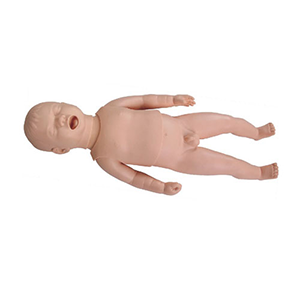

Article tag: Preterm Infant Care Model| Medical Pediatric Model| BIX-T331A|
Overall, while theoretical learning is essential for building medical fundamentals, the effects of simulation training are undoubtedly more prominent in the field of preterm care. Through simulation training, nursing staff can better apply theory to practice, improve clinical resilience and practical operation level. Therefore, combining theoretical learn...
In the medical field, especially in the nursing of premature infants, how to improve the clinical skills and emergency response ability of nurses has always been an important topic. Although theoretical learning is essential for understanding disease mechanisms and care processes, there is growing evidence that simulation training often improves practical skills better than traditional classroom instruction. Especially in the high-risk, high-technology field of caring for preterm infants, simulation training can better help caregivers navigate complex situations in real-world Settings.
Advantages of simulation training

Simulation training provides a learning scenario close to a real clinical environment, enabling caregivers to practice and master the necessary skills repeatedly without compromising patient safety. The research shows that simulation training can help nurses to reduce tension and improve emergency handling ability and operation proficiency when facing the actual situation. For example, one study found that participants who performed CPR in preterm infants improved their success rate by about 30 percent with simulated training and significantly reduced reaction times.
In addition, simulation training allows students to learn in a variety of situations, thereby improving their comprehensive coping skills. For the nursing of premature infants, the physiological characteristics of premature infants make the nursing process full of challenges, and through simulation training, nurses can not only train in different clinical environments, but also learn how to deal with various emergencies, such as apnea and hypothermia of premature infants.
Data support
A study conducted in the United States showed that nurses who underwent simulated training for preterm infants showed a significant improvement in their performance during neonatal resuscitation operations. In the study, 75 percent of nurses showed more confidence and proficiency in the operation after simulated training. In addition, the simulation training also effectively reduced the errors of the nursing staff, especially in the face of the special group of premature babies, the nursing staff can be more accurate, thus reducing the medical errors caused by improper care.
Limitations of theoretical learning
Although theoretical learning helps to lay the foundation for knowledge, it often lacks sufficient practical experience when dealing with complex and emergent clinical situations. For example, while theoretical teaching can teach the physiological characteristics and nursing procedures of newborns, it cannot really help students grasp how to make quick decisions under pressure and respond to emergencies. Simulation training is the key to fill this gap. Not only does it allow caregivers to master operational skills, but more importantly, it allows trainees to learn how to respond quickly and effectively in the real world.
conclusion
Overall, while theoretical learning is essential for building medical fundamentals, the effects of simulation training are undoubtedly more prominent in the field of preterm care. Through simulation training, nursing staff can better apply theory to practice, improve clinical resilience and practical operation level. Therefore, combining theoretical learning and simulation training to form a comprehensive training model will provide a solid guarantee for the quality and safety of preterm care.